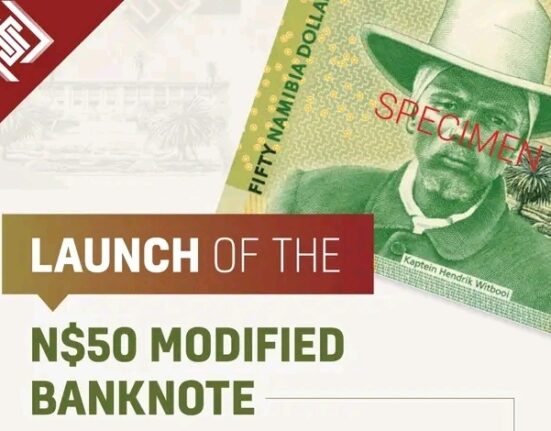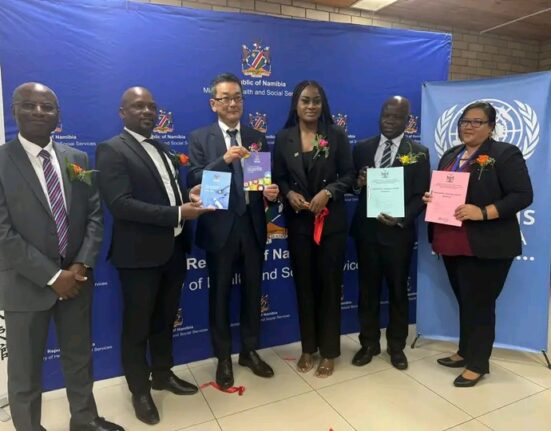Eric Sell, better known as EES (an abbreviation for “Easy Eric Sell”), is one of Namibia’s most prominent musical figures. With his infectious energy, innovative fusion of Kwaito music, and global appeal, EES has carved a unique space for himself in the Namibian and international music scenes. Known for his ability to blend traditional Namibian sounds with modern global influences, EES has played a pivotal role in putting Namibian Kwaito on the map.
This article explores the life, career, and influence of EES, showcasing how he has bridged the gap between local culture and international music trends while championing Namibia’s musical heritage.
Who is EES?
EES was born Eric Sell on October 5, 1983, in Windhoek, Namibia. Born to German parents, EES grew up in a multicultural environment that exposed him to a wide range of musical genres. His love for music was evident from a young age, but it wasn’t until his teenage years that he discovered his passion for Kwaito.
Kwaito, a South African-born genre blending house music with African rhythms and street culture, resonated deeply with EES. It provided him with the perfect platform to merge his Namibian roots with his diverse musical influences.
The Start of His Musical Journey
EES officially launched his music career in the early 2000s, a time when Kwaito was gaining popularity across Southern Africa. Determined to stand out, he infused the genre with his unique flair by incorporating traditional Namibian rhythms, German lyrics, and international sounds.
His debut album, Straight from Nam (2004), was a testament to his creative vision. Songs such as “Da Gehn Wir” and “Sharp, Sharp” showcased his ability to connect with Namibian audiences while introducing an innovative twist to Kwaito music. The album quickly gained popularity, establishing EES as a force to be reckoned with in the Namibian music scene.
Blending Cultures Through Music
One of EES’s defining characteristics as an artist is his ability to seamlessly blend cultures. His music often features a mix of English, Afrikaans, German, and Oshiwambo lyrics, reflecting Namibia’s linguistic diversity. This multilingual approach has allowed EES to connect with a wide range of audiences, both locally and internationally.
EES’s music celebrates Namibian culture while making it accessible to global audiences. Tracks like “Woza December” and “Ayoba” are filled with references to Namibian slang, traditions, and everyday life, creating a sense of pride among his local fans.
EES as a Cultural Ambassador
Beyond his music, EES has become a cultural ambassador for Namibia. Through his energetic performances, charismatic personality, and dedication to promoting Namibian music, he has introduced audiences worldwide to the country’s rich cultural heritage.
EES gained international recognition when he participated in and won the German music competition X Factor in 2018. His victory brought significant attention to Namibian music, showcasing its potential to compete on a global stage.
Following his win, EES used his platform to highlight Namibia’s music industry, encouraging local artists to embrace their cultural identity and push boundaries.
Achievements and Awards
EES’s contributions to Namibian music have earned him numerous accolades and recognition. He has won several Namibian Annual Music Awards (NAMAs), including Best Kwaito Artist and Best Music Video.
His international achievements include collaborations with renowned producers and artists, as well as performances at major festivals across Europe and Africa. EES’s ability to connect with diverse audiences has solidified his position as one of Namibia’s most successful and influential musicians.
EES’s Role in Modern Kwaito
While traditional Kwaito music is rooted in South African township culture, EES has redefined the genre by adding a Namibian twist. His music often incorporates elements of Afrobeat, reggae, and electronic dance music, creating a sound that appeals to both traditional Kwaito fans and modern audiences.
EES’s willingness to experiment with different sounds and styles has kept his music fresh and relevant. Albums such as Yes, Ja! (2015) and Game Changer (2019) showcase his versatility as an artist, with tracks ranging from dance-floor anthems to socially conscious songs.
Impact on Namibian Youth
EES’s influence extends beyond music. He has become a role model for Namibian youth, inspiring them to embrace their heritage and pursue their dreams. His lyrics often promote positivity, hard work, and self-confidence, resonating deeply with young listeners.
Through initiatives such as workshops and mentorship programs, EES has actively supported the development of Namibia’s music industry. His dedication to empowering young artists has helped foster a new generation of talent in the country.
EES’s Unique Brand
EES’s success can also be attributed to his strong personal brand. His signature style, which includes bright yellow and black outfits, sunglasses, and a playful sense of humor, has made him instantly recognizable.
This branding extends to his music videos, which are known for their creativity and high production quality. Videos like “Original Eh!” and “International” have gained millions of views on YouTube, further cementing his global appeal.
Challenges and Resilience
Like any artist, EES has faced challenges throughout his career. Navigating the complexities of the music industry as an independent artist has required resilience and determination. However, EES’s ability to adapt and innovate has allowed him to overcome obstacles and achieve lasting success.
His journey serves as a reminder that embracing one’s unique identity and staying true to one’s roots can lead to remarkable achievements.
Legacy and Future
EES’s legacy as a pioneer of Namibian Kwaito is undeniable. His contributions to the genre have elevated Namibian music to new heights, inspiring countless artists and fans along the way.
As EES continues to evolve as an artist, his impact on the music industry remains strong. His ability to bridge cultures and connect with audiences worldwide ensures that his influence will endure for years to come.
Through his music, EES has not only entertained but also united people, proving that music is a powerful tool for cultural exchange and understanding.













